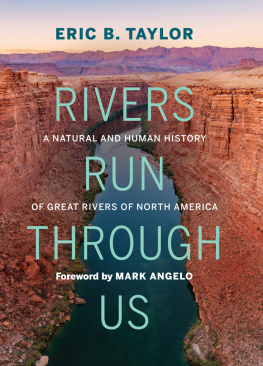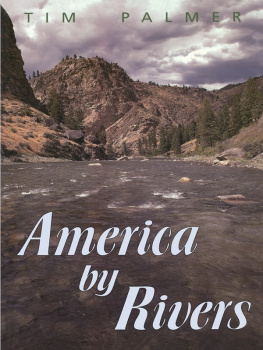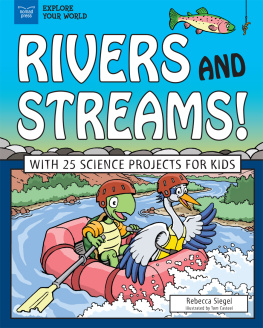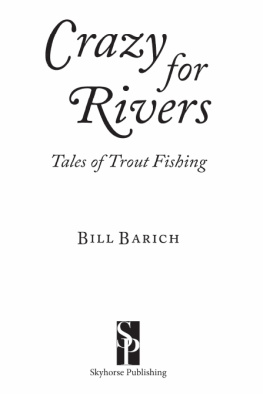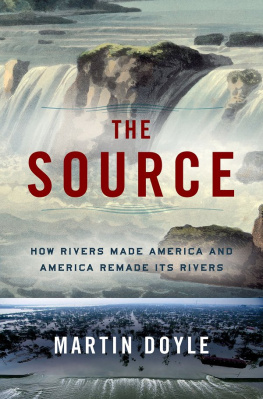Tyler J. Kelley - Holding Back the River: The Struggle Against Nature on Americas Waterways
Here you can read online Tyler J. Kelley - Holding Back the River: The Struggle Against Nature on Americas Waterways full text of the book (entire story) in english for free. Download pdf and epub, get meaning, cover and reviews about this ebook. year: 2021, publisher: Avid Reader Press / Simon & Schuster, genre: Detective and thriller. Description of the work, (preface) as well as reviews are available. Best literature library LitArk.com created for fans of good reading and offers a wide selection of genres:
Romance novel
Science fiction
Adventure
Detective
Science
History
Home and family
Prose
Art
Politics
Computer
Non-fiction
Religion
Business
Children
Humor
Choose a favorite category and find really read worthwhile books. Enjoy immersion in the world of imagination, feel the emotions of the characters or learn something new for yourself, make an fascinating discovery.

- Book:Holding Back the River: The Struggle Against Nature on Americas Waterways
- Author:
- Publisher:Avid Reader Press / Simon & Schuster
- Genre:
- Year:2021
- Rating:3 / 5
- Favourites:Add to favourites
- Your mark:
Holding Back the River: The Struggle Against Nature on Americas Waterways: summary, description and annotation
We offer to read an annotation, description, summary or preface (depends on what the author of the book "Holding Back the River: The Struggle Against Nature on Americas Waterways" wrote himself). If you haven't found the necessary information about the book — write in the comments, we will try to find it.
The Mississippi. The Missouri. The Ohio. Americas rivers are the very lifeblood of our country. We need them for nourishing crops, for cheap bulk transportation, for hydroelectric power, for fresh drinking water. Rivers are also part of our mythology, our collective soul; they are Mark Twain, Led Zeppelin, and the Delta Blues. But as infrastructure across the nation fails and climate change pushes rivers and seas to new heights, weve arrived at a critical moment in our battle to tame these often-destructive forces of nature.
Tyler J. Kelley spent two years traveling the heartland, getting to know the men and women whose lives and livelihoods rely on these tenuously tamed streams. On the Illinois-Kentucky border, we encounter Luther Helland, master of the most importantand most decrepitlock and dam in America. This old dam at the end of the Ohio River was scheduled to be replaced in 1998, but twenty years and $3 billion later, its replacement still isnt finished. As the old dam crumbles and commerce grinds to a halt, Helland and his team must risk their lives, using steam-powered equipment and sheer brawn, to raise and lower the dam as often as ten times a year.
In Southeast Missouri, we meet Twan Robinson, who lives in the historically Black village of Pinhook. As a super-flood rises on the Mississippi, she learns from her sister that the US Army Corps of Engineers is going to blow up the levee that stands between her home and the river. With barely enough notice to evacuate her elderly mother and pack up a few of her own belongings, Robinson escapes to safety only to begin a nightmarish years-long battle to rebuild her lost community.
Atop a floodgate in central Louisiana, were beside Major General Richard Kaiser, the man responsible for keeping North Americas greatest river under control. Kaiser stands above the spot where the Mississippi River wants to change course, abandoning Baton Rouge and New Orleans, and following the Atchafalaya River to the sea. The daily flow of water from one river to the other is carefully regulated, but something else is happening that may be out of Kaiser and the Corps control.
Americas infrastructure is old and underfunded. While our economy, society, and climate have changed, our levees, locks, and dams have not. Yet to fix whats wrong will require more than money. It will require an act of imagination. With meticulous research and insightful analysis (Publishers Weekly), Holding Back the River brings us into the lives of the Americans who grapple with our mighty rivers and, through their stories, suggests solutions to some of the centurys greatest challenges.
Tyler J. Kelley: author's other books
Who wrote Holding Back the River: The Struggle Against Nature on Americas Waterways? Find out the surname, the name of the author of the book and a list of all author's works by series.

